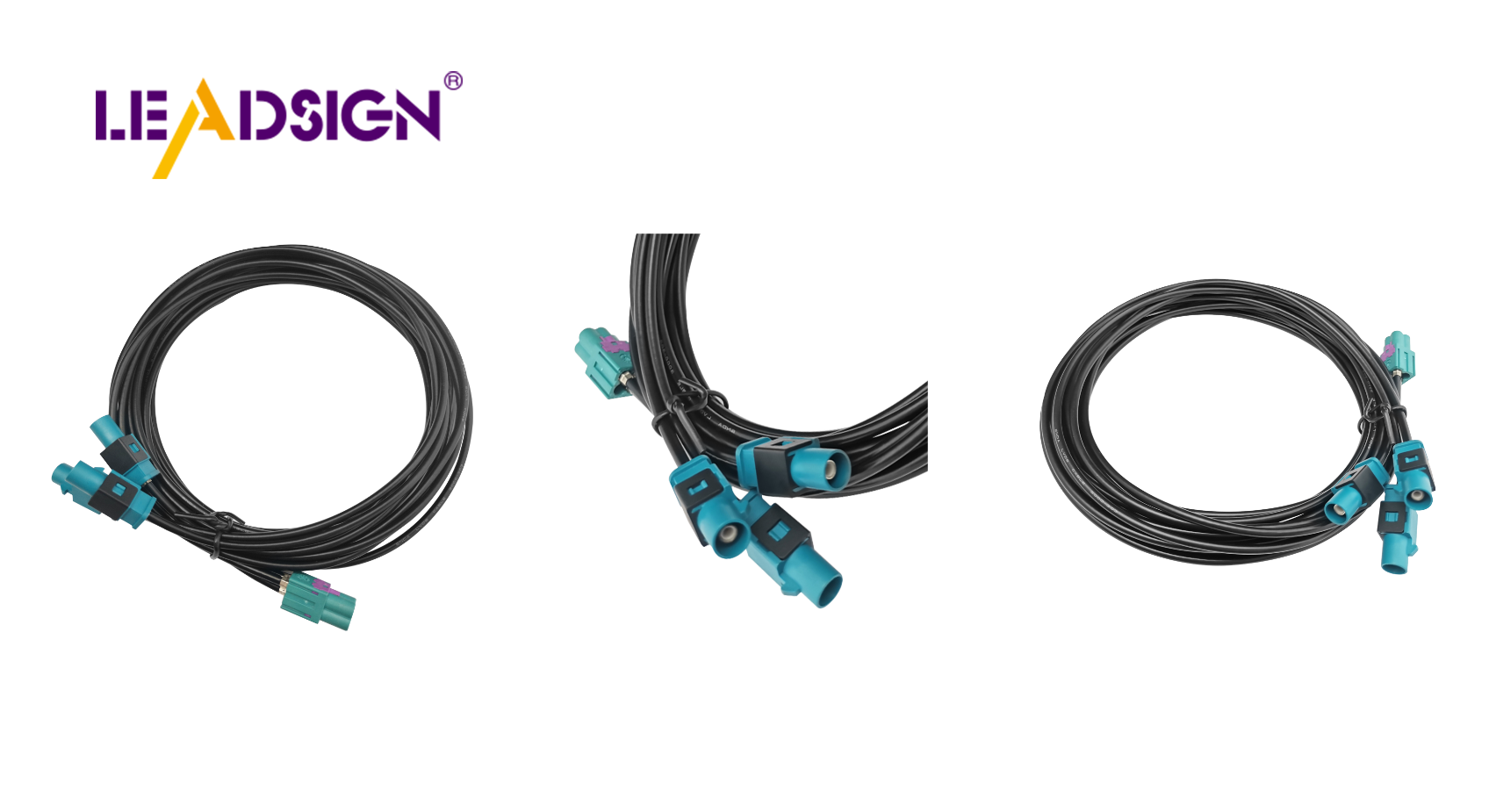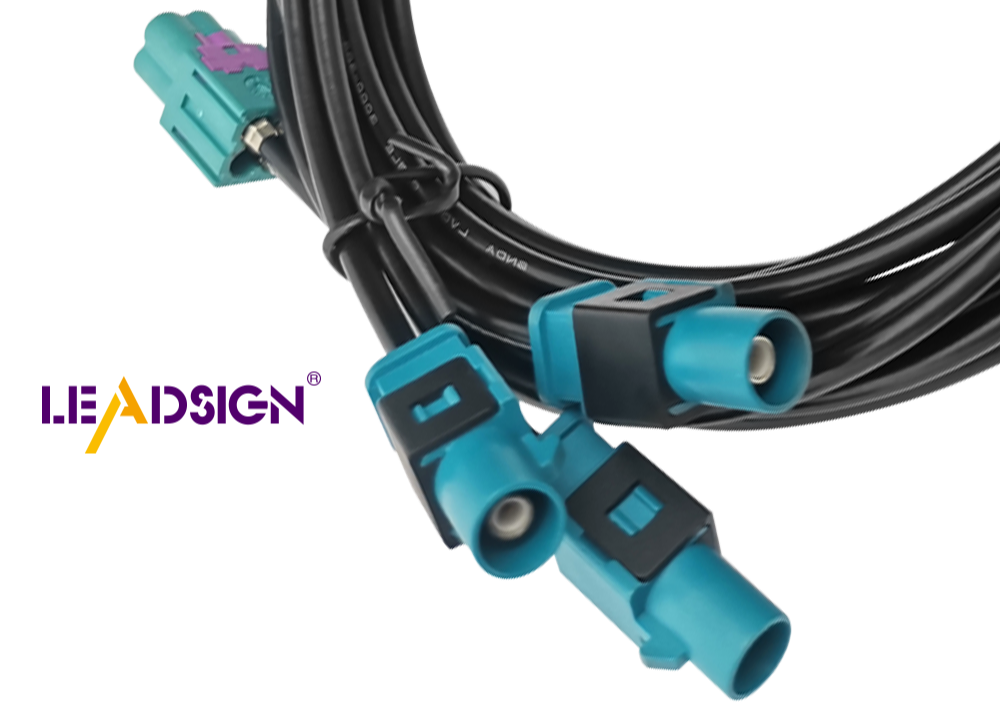Essential Car Wire Connector Types You Need to Know

Car wire connectors, including various car wire connector types, play a crucial role in ensuring the proper functioning of your vehicle's electrical components. These connectors facilitate the transmission of signals between different parts of the car and come in a variety of shapes and sizes, each designed for specific purposes. Understanding the different types of car wire connectors highlights their significance in maintaining secure connections that prevent damage from vibration, heat, or corrosion. By delving into the world of car wire connector types, you can appreciate their importance in modern automotive systems.
Learning About Car Wire Connectors
What Are Car Wire Connectors?
Car wire connectors are important parts of your car's electric system. They connect circuits to let electricity flow smoothly, powering things like headlights and the engine. These connectors can be plugs or sockets, often made from copper, brass, or bronze. These metals conduct electricity well and don't rust easily, making them great for cars.
Main Features of Wire Connectors
Wire connectors in cars have several important features:
Durability: They are built to last in tough conditions and resist heat, water, and rust.
Reliability: They ensure strong connections so your car works well without problems.
Versatility: They come in many shapes and sizes for different car needs.
Customization: Some can be specially made for certain uses to work best.
Uses in Cars
Common Uses in Cars
You will see wire connectors all over your car. They link wires to parts that need power like lights and radios. Some keep out water and dirt, while others make it easy to unplug parts.
Importance for Safety and Performance
Wire connectors are key for keeping your car safe and working right. Good connections help signals move smoothly through systems, stopping problems that could be unsafe. For example, some connectors help charge batteries or fit different wiring types by crimping or soldering. Strong connections keep your car running safely and well.
Types of Car Wire Connectors

Knowing different car wire connector types is key for your car's electric system. Each type has a special job to keep your car running well and safely. Let's look at some common car wire connectors.
Blade Connectors
Features and Uses
Blade connectors are very popular in cars. They have a flat metal piece that fits into a slot. You see them in fuse boxes and other parts. They connect quickly, which is good if you need to unplug often.
Advantages and Disadvantages
Advantages:
Easy to Use: Just plug them in.
Versatile: Work with many car parts.
Disadvantages:
Low Current Limit: Can't handle big power loads.
Loose Connections Risk: Unplugging often can make them loose.
Butt Connectors
Features and Uses
Butt connectors join two wires end-to-end. They're used in fixing or adding wires in cars. Crimping keeps the connection strong for electricity flow.
Advantages and Disadvantages
Advantages:
Strong Hold: Crimping makes wires stay together well.
Insulation Protection: Stops short circuits with insulation.
Disadvantages:
Hard to Undo: Once crimped, hard to take apart without cutting.
Needs Tools: You need a tool to crimp right.
Ring Connectors
Features and Uses
Ring connectors are round and fit on bolts or screws. Used for grounding or battery links, they give a strong hold, great for important systems.
Advantages and Disadvantages
Advantages:
Strong Link: Rings hold tight.
Simple Setup: Easy with just a screw or bolt.
Disadvantages:
Not Flexible: Hard to move once set up.
Size Matters: Must fit the bolt size exactly.
By knowing these connector types, you can choose wisely when fixing your car's electric parts. Each type has its own perks, helping you pick the right one for your needs.
Spade Connectors
Spade connectors are a favorite for car wiring. They have a flat, fork shape that slides onto posts easily. You see them where quick disconnection is needed in cars.
Features and Uses
Spade connectors have useful features:
Easy to Use: Attach or remove them fast without special tools.
Versatile: Fit different terminal sizes for various car parts.
Insulation: Many have sleeves to stop short circuits.
They connect wires to switches, relays, and parts needing frequent disconnection. Their design keeps connections secure, preventing accidental slips.
Advantages and Disadvantages
Advantages:
Quick Install: Fast to put on or take off, saving repair time.
Secure Hold: Fork shape holds tight, reducing loose wires risk.
Disadvantages:
Low Current Limit: Not good for high power needs.
Corrosion Risk: Can rust without proper cover in bad conditions.
Multi-Pin Connectors
Multi-pin connectors link many wires to one part. They're key in complex car systems needing multiple signals at once.
Features and Uses
Multi-pin connectors have important features:
Many Connections: Join several wires together for easy setups.
Durable Design: Made tough with weatherproofing against water and dirt.
Variety Available: Different types fit various car needs.
Used in infotainment, navigation, and driver help systems where many signals are managed well.
Advantages and Disadvantages
Advantages:
Efficient Wiring Setup: Simplify by grouping connections into one unit.
Strong Build: Reliable even in tough places.
Disadvantages:
Complex Setup Needed: Harder to install than simple connectors.
Higher Price Tag: More costly due to complexity compared to others.
Knowing these connector types helps choose wisely for your car's electric work. Each type has benefits fitting specific needs.
Picking the Right Wire Connectors
Choosing the right wire connectors is key for your car's electric system. Knowing what to think about helps you choose wisely.
Things to Think About
Matching Car Systems
Make sure wire connectors fit your car's systems. Cars need different electric parts, so pick ones that match. Spade Connectors are great for linking devices because they fit many uses. They come in types like bendy and regular, good for various jobs.
Strong and Good Materials
Strong, quality materials make wire connectors work well. Choose ones made of copper or brass as they conduct electricity well and resist rusting. Multi-Pin Connectors join many wires together and are tough enough for harsh conditions, keeping connections strong over time.
Tips for Choosing
Checking Electric Needs
Check your car's electric needs before picking connectors. Know how much power each part needs so you don't pick weak ones that might fail. Wire Connectors link circuits, letting signals flow smoothly. Picking the right kind helps power move through your car well.
Looking at Weather Conditions
Think about where your car goes. If it faces heat or rain, get weatherproof connectors to keep out water and dirt. Multi-Pin Connectors often have strong designs that shield against bad weather, making them good for systems like navigation or driver help.
By thinking about these things and using these tips, you can pick the best wire connectors for your car. This keeps its electric system working well, boosting performance and safety.
Choosing the right wire connectors is crucial for your car's electric system. They help electricity move smoothly, powering things like the engine and radio. Good connectors make strong links and keep things safe by stopping interference.
Key Insight: The quality of car electrical connectors affects how well and safely a car's electric system works.
By learning about different connector types and uses, you can choose wisely to improve your car's performance and life. Always pick durable and compatible ones for your car needs.
See Also
An In-Depth Look at Fakra Connectors: Fundamentals, Varieties, and Uses
Understanding HSD Connectors in Automotive Sector
The Significance of FAKRA Z Connectors in Auto Uses

